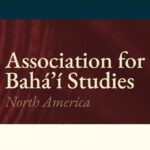Delegates at Canada’s National Convention focus on oneness
The 157 delegates at Canada’s 66th National Convention – held in late April at the Toronto Bahá’í Centre – have a variety of life experiences and come from a diversity of places.
They are farmers, coffee shop owners, artists, welders, research assistants, and university professors. A delegate from Manitoba shared that her town had become “colder than the surface of Mars” for a few days last winter, while a delegate from British Columbia described her area “as the land of retirees.” A delegate from Nunavut noted that the territory encompasses about 20 percent of Canada. “If you come far north from Montreal or Winnipeg, you reach Nunavut,” he said, eliciting laughs.
Delegates from all over Canada found a new sense of possibility in this passage from the Ridván 2014 message: “The very fact that each set of circumstances presents its own challenges is enabling every community not simply to benefit from what is being learned in the rest of the Bahá’í world but also to add to that body of knowledge.”

A picture of the delegates present at the National Convention, Counsellor Ann Boyles (second row, second from left) and all nine members of the newly elected National Spiritual Assembly (second row, third from left to 11th from left). Photo: Laura Mostmand
Drawing on the Ridván message throughout their discussions, especially the second and fifth paragraphs, delegates expressed joy at and a desire to learn from the movement of youth, which was accelerated by the youth conferences of last summer. Stories were told of encouraging developments in relationships with Canada’s Aboriginal peoples, at the local level through the spaces created by the institute, and at provincial levels through the Truth and Reconciliation Commission, where stories of survivors of Canada’s residential school system were shared. A number of delegates also raised questions and shared their experiences with the meaningful and distinctive conversations that begin and strengthen programmes of growth.

Delegates prepare for the Convention by studying guidance from the Universal House of Justice. Photo: Louis Brunet
The Convention began with a preparation session for delegates on the afternoon of Thursday 24 April, which was intended to assist them to fulfill their tasks of electing the National Spiritual Assembly and consulting on the progress of the Plan in Canada. Dr. Ann Boyles, a member of the Continental Board of Counsellors, facilitated a study of two messages from the Universal House of Justice, one dated 25 March 2007, which helped the delegates to think about the electoral process, and the other dated 16 May 2013, which assisted the delegates to deepen on the nature of consultation at the National Convention.
During the Convention itself, Dr. Boyles raised several questions regarding the use of our time and energy in the remaining two years of the Five Year Plan, including: What are the priorities we will set for ourselves? How do we sustain momentum that has been building over the last few years, particularly over the last year? How do we help those who want to arise to serve humanity – both within and outside the Bahá’í community – to be drawn into this circle of intimate friends?
One obstacle to achieving the goals of the Plan identified during the consultation was that a number of people felt that their hearts had been broken through trying to reach out to the peoples of the world, but not succeeding in the way that they felt they should. As the consultation progressed, it became clear that this apparent obstacle was in reality a strength that would humble the friends, and better equip them to draw more people into their circle of intimate friends.
An Ontario delegate quoted the poet Mary Oliver:
I tell you this
To break your heart,
By which I mean only
That it break open and never close again
To the rest of the world.
A delegate from Saskatchewan expanded on the point that broken hearts can become open hearts, noting that the more we suffer, “the more we are able to come together as one people.” A delegate from Alberta observed that the hearts of different races are all the same colour, the colour of blood. She said that the fact that the hearts are broken means that the boundaries are dissolving, as the National Spiritual Assembly observed in its annual report. She added: “We are all from different cultural backgrounds, but we are in tune with how we want to approach our work.” Later in the consultation, several delegates noted that the task of accompanying others to serve their communities is “heart to heart.”
On Saturday morning, the delegates undertook the sacred task of electing the National Spiritual Assembly. Rose petals from the Shrine of the Báb lay on a table near the ballot box. The delegates achieved universal participation in the election.
As delegates awaited the results of the election, they took great interest in a discussion about furnishing the material means required for the development of the Cause. Among the topics discussed was the sacred duty of deputization, by which one who is unable to devote a significant amount of time to teaching may deputize another who will arise in his or her place. The treasurer of the National Assembly also described the sacrifices of youth to live on minimal funds during their years of service and noted that costs had been reduced at the Bahá’í National Centre to finance the three youth conferences last year and to deputize year-of-service youth and homefront pioneers.
Dr. Boyles described the consultation at the Convention as being concerned with the “profound change in culture” that the community is witnessing. She noted that it begins simply, with a genuine conversation that is purposeful, following the example of the Master, who would invite individuals to investigate reality with Him. Dr. Boyles noted that as individuals take the initiative to have these conversations and invite their friends to activities, individual efforts eventually coalesce and a community spirit emerges. These conversations are widening the circle of spiritual kindred and deepening our understanding of oneness. The need to work for the oneness of humanity becomes more apparent because humanity is suffering more deeply. Dr. Boyles also expressed the opinion that the community is learning a great deal from the youth about “creativity that brings joy.”

Dr. Boyles raised several questions regarding the use of our time and energy in the remaining two years of the Five Year Plan. Photo: Louis Brunet
Hearing about past Canadian National Conventions from Mr. Douglas Martin, a former member of the Universal House of Justice, and frequent mention of the long-suffering believers of Iran and the names of Canadian Bahá’ís who had passed away this year, along with other heroic souls of the past, contributed to the spiritually charged environment of the Convention.
Near the close of the Convention, the Secretary of the National Spiritual Assembly referred to ‘Abdu’l-Bahá, who revealed a Tablet to the Bahá’ís of Canada and Greenland in Bahá’u’lláh’s room at the House of Abbúd on 21 February 1917. The Secretary also noted that there are now 87 clusters in Canada where the capacities required to initiate programmes of growth are present, bringing us closer to ‘Abdu’l-Bahá’s vision for this country. Canada’s goal is to initiate 109 programmes of growth by the end of the Plan. The Secretary also brought up words of ‘Abdu’l-Bahá from this Tablet that have been mentioned at previous Canadian National Conventions: “‘Abdu’l-Bahá during his journey and sojourn through that Dominion [Canada] obtained the utmost joy.”









